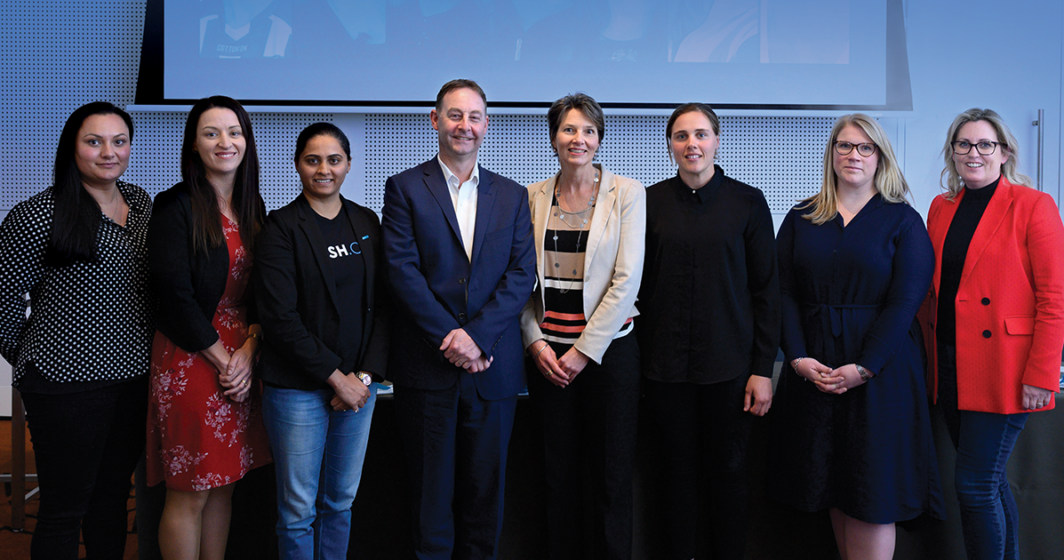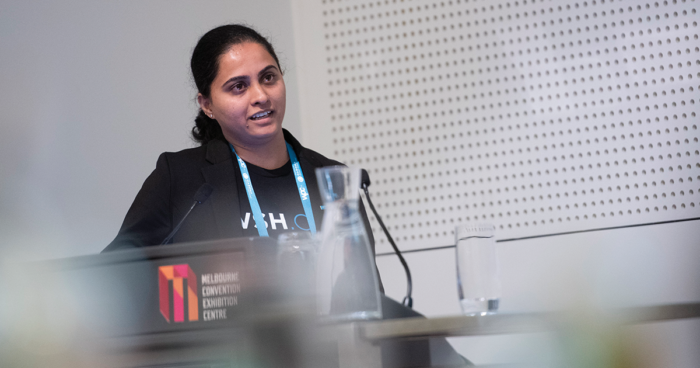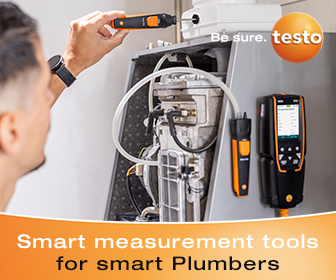Swathi Saralaya Project Manager, IAPMO India & IWSH came to the World Plumbing Conference (WPC) in Melbourne to talk about the importance of women in plumbing and the issues they face.
It is observed that women have a role to play in the plumbing industry as well and that they can build successful careers within the sector. However, it is not easy to work in this industry given various barriers to enter such a gender-based discrimination, the harsh work environment of the construction site, the lack of sufficient knowledge about the industry itself and the shortage of successful women role models.

To stimulate debate about how the low representation of women in plumbing can be addressed and how construction careers for women can be promoted and encouraged, Master Plumbers Australia and New Zealand (MPANZ) hosted a session called “Women in Plumbing” during the WPC’s Triennial World Plumbing Conference in Melbourne in September.
The biggest highlight of the conference for me was being a part of this session. MPANZ had assembled a panel of female leaders from across the plumbing industry to discuss topics specific to attracting more women into trades and into leadership roles within the industry.
Being a keynote speaker, I spoke about my role in IAPMO India, managing various plumbing education and training projects and as a team member of International Water Sanitation and Hygiene Foundation (IWSH), focusing on delivering clean water and sanitation to developing communities all over the world.
On 25 September 2015, the United Nations General Assembly adopted the 2030 Agenda for Sustainable Development as the agreed framework for international development. The Sustainable Development Goals (SDG) address the global challenges we face, including those related to poverty, inequality, climate, environmental degradation, prosperity, and peace and justice.
The Goals interconnect and in order to leave no one behind, it is important that we achieve each Goal and target by 2030. To achieve ‘Goal 6: Ensure access to water and sanitation for all’, IWSH has been designing and implementing projects in India, South Africa, Indonesia and USA, by bringing various skilled persons in the construction industry from across the world. It is to be noted that access to clean water is critical for achieving gender equality and enhancing women empowerment.
Skills such as plumbing can change lives of disadvantaged people and it is important that young people are encouraged to learn these skills irrespective of their gender.
IWSH has been able to facilitate over 100 skilled volunteers in providing their unique expertise and experience in support of water and sanitation initiatives benefiting communities in Nepal, South Africa, India, Indonesia and United States.

The other speakers shared their stories and journeys of how they came to work in the plumbing industry and provided practical tips and advice on how to engage more females in the industry.
Lisa Cutler who is a coach, speaker and facilitator dedicated to helping women progress in leadership, and organisations spoke about Gender Smarts.
Gender Smarts creates happier, healthier workplaces with better business results, through increased awareness and appreciation of gender differences.
Lisa stressed on the fact that it is definitely time to start breaking down those gender stereotypes that are holding women and men back in the plumbing industry.
Penny Cornah, Chief Executive, Master Plumbers Association of Queensland, spoke about the role of women in building economies and how when women are not integrated as both beneficiary and shaper - the plumbing community loses out on skills, ideas and perspectives that are critical for addressing global challenges.
As the Chief Executive Officer of Victoria’s principal building and plumbing regulator, Sue Eddy sits at the forefront of the construction industry and leads the Victorian Government’s response to the inappropriate use of non-compliant combustible cladding materials in the building industry.
In the wake of London’s Grenfell Tower fire in June 2017, governments and construction industries worldwide have been forced to grapple with the issues posed by combustible cladding.
In Victoria, the Government began auditing the built environment, inspecting and working with the industry to remove potentially dangerous materials from buildings across the state. Sue conversed about the growing involvement of women in the plumbing industry.
Kimberley Smyth runs Hey Sista Plumbing, a business that prides itself on being a female-led business. She is a proud plumber and urged everyone to support and encourage their sons and daughters to be happy in any career they choose.
The panel also included Jasmine Garner, an elite Australian Rules Football Women’s (AFLW) player. Jasmine recently commenced her plumbing apprenticeship with Cooke & Dowsett and is currently working on the new netball and hockey stadium.
The stadium will be receiving a $64 million make-over from Minister for Women and Industrial Relations Natalie Hutchins with the majority going towards creating Victoria’s first Women in Construction Strategy in conjunction with the Building Industry Consultative Council.
Overall, the session aimed to explore the role of women in the plumbing industry. To encourage women participation in plumbing, they must be provided with support and encouragement for nontraditional choices at an early age.
The way forward is for employers and the government to provide adequate facilities to women employees. All employees should be provided with a clear growth path based only on merit without bias. For resolving issues specific to the construction industry, women need to be supported and properly trained through legal and social interventions so that associated social customs can also be addressed.
Employers need to create an environment that is clean and safe to help motivate women. Another method to help facilitate women employees is by improving workplace flexibility and using working models that help mitigate problems faced by women who want to work.
Greater participation of women in the workforce is important not only for achieving higher growth but for attaining an overall social development and should be a top priority for the country.
Share this Article






